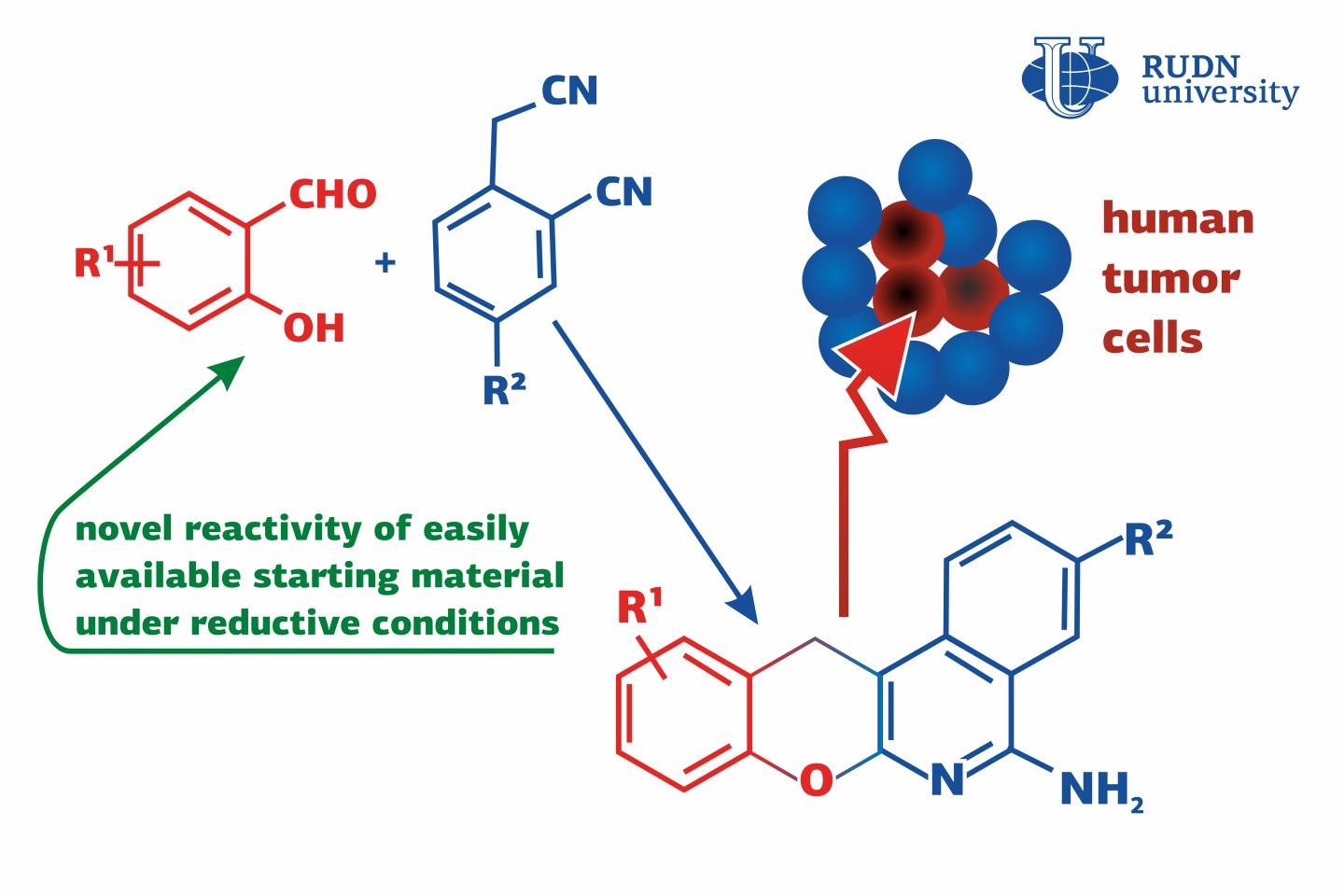RUDN University chemists have proposed a new reaction for the synthesis of complex organic substances in a single vessel

The synthesis of many organic substances is a complex multi-stage process, at each stage of which only one of the necessary chemical bonds is usually formed. The desired molecule is assembled gradually, like a constructor. It takes much less time to synthesize the domino reaction — a cascade of reactions that occur together in one vessel one after another without additional reagents. Chemists from RUDN University, together with Italian colleagues, picked up substances that trigger a domino reaction to produce derivatives of chromenoisoquinolinamines. These compounds are used as anti-inflammatory and antitumor drugs, and some of them are promising candidates for the treatment of Alzheimer’s disease.
Scientists have proposed using salicylic aldehyde (a derivative of salicylic acid) and homophthalonitrile, and as a catalyst for the reaction — a cheap and environmentally friendly ammonium salt of formic acid. The initial reagents were mixed with water and isopropyl alcohol and irradiated in a microwave reactor, heated to 150 °C for 20 minutes. By reacting aldehydes with different substituent groups, the researchers obtained 19 different derivatives of chromenoisoquinolinamines.
The chemists then tested their effects on breast cancer cells, colon cancer cells, and three ovarian cancer cell lines. For comparison, cisplatin, a drug used in chemotherapy, was used. Two ovarian cancer cell lines were resistant to cisplatin, but the new substances were toxic to all tumor cells. The researchers selected two compounds that were effective even at low concentrations. Computer simulations have shown that this is due to an additional amino group that forms stable bonds with nucleotides in the DNA of the cancer cell.
“Our work was aimed at finding new compounds with promising properties for medical chemistry and creating ways to synthesize them. The developed approach makes it possible to synthesize substances with antitumor potential in one domino reaction, which proceeds very efficiently — four new chemical bonds are created in one synthetic operation. In the future, we plan to develop the created methodology by developing three — and four-component reactions based on it,” said co-author of the article Alexey Festa.
Matilda Pavlovna Mityaeva was born in 1925. In November 1942, she volunteered for frontline duty. She participated in the Great Patriotic War from November 1942 to June 1945 as part of the 53rd Infantry Division of the 475th Infantry Regiment. She was wounded twice.
The team led by Sergey Zyryanov, Head of the Department of General and Clinical Pharmacology, became the winner of the All-Russian competition of scientific projects "Technologies for Human Health".
RUDN University constantly adapts to the changes of the modern world and responds to challenges flexibly. This allows us to keep the standard of a world-class research university. The sphere of science is no exception. Peter Dokukin, Head of the Research Division, presented the updated R&D Programme at the meeting of the RUDN University Academic Council.
Matilda Pavlovna Mityaeva was born in 1925. In November 1942, she volunteered for frontline duty. She participated in the Great Patriotic War from November 1942 to June 1945 as part of the 53rd Infantry Division of the 475th Infantry Regiment. She was wounded twice.
The team led by Sergey Zyryanov, Head of the Department of General and Clinical Pharmacology, became the winner of the All-Russian competition of scientific projects "Technologies for Human Health".
RUDN University constantly adapts to the changes of the modern world and responds to challenges flexibly. This allows us to keep the standard of a world-class research university. The sphere of science is no exception. Peter Dokukin, Head of the Research Division, presented the updated R&D Programme at the meeting of the RUDN University Academic Council.